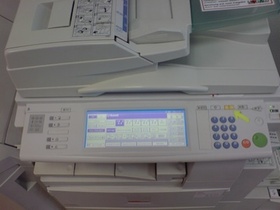What Business Owners Need To Know Before Returning Leased Copiers
Many business owners like the convenience of leasing a copier rather than purchasing the equipment outright. A lease allows them to easily upgrade to a more advanced model every few years, and eliminates the hassle of maintaining aging equipment. Few business owners, however, consider what happens to the machines they send back, and the risks they take by returning machines that may hold confidential data about employees, clients, and their business.
Where do used copiers go?
Many people assume that the returned copiers will stay in their community, to be sold to a smaller company. The truth is that your copier could end up just about anywhere. Some old, damaged copiers are sent to companies that strip all the metal, glass, and plastics from the machines to recycle them. Others are sold locally, and more end up in large warehouses where they are sold to companies both domestic and foreign.

Copiers make a copy and keep a copy
Every copier made since 2002 contains a hard drive that stores thousands of the pages copied on your machine. While this enables a copier to be much more efficient and useful to your business, it can also create a security risk when you return leased equipment.
In 2010, CBS aired a report demonstrating how easy it is to buy used copiers with hard drives filled with sensitive information. Their reporter purchased four previously owned copy machines and, with software freely available on the Internet, extracted from their hard drives copies of pay stubs complete with social security numbers, complete medical records, and criminal records.
The four machines CBS purchased were from a warehouse filled with more than 6,000 copiers, many of which were destined to be shipped to Asia and South America.
Deleting your data
Because you cannot control where your used copier goes after it is traded in, it is essential to ensure that all the data it has stored has been completely purged from the machine's hard drive and memory.
While some copiers do have a purge function built in, an internal deletion process will not prevent data thieves from extracting complete pages of information from your drives if the drive is not cleansed properly.
The time to think about getting rid of your machine is before it's ever delivered to your facility. With that in mind, many leases stipulate what happens to the hard drive at end-of-life. Typical options include:
- Destroy the hard drive
- Keep it on-site
- Have the MFP distributor erase the hard drive using an approved process
For the most secure setup, you'll want to retain and/or destroy the drive yourself whenever possible.
The National Security Agency (NSA) employs a process that's become widely recognized as the agreed-upon security standard for disposing of hard drives and other magnetic storage devices. In their guidelines, they recommend that hard drives are sanitized (erased) with an automatic degausser prior to physical destruction. Obviously this won't be an option with some leases.
Therefore, a far less permanent solution would be to consult the manual that came with the copier. Within these instructions, you'll find the manufacturer's directions to clear the stored data. Many manufacturers also provide advanced optional accessories that include a data erase kit and data encryption kit.
- Warning: Do not remove the copier's hard drive if returning a copier at the end of a lease as this can destroy the operating system and the copier will become non-operational, leaving you liable for damages.
Is leasing really more convenient?
Given that many business owners choose the more expensive lease option because of convenience, the time and resources required to purge the hard drive each time a machine is sent back may reduce the appeal and convenience of leasing a copier rather than purchasing the same machine with an extended warranty to keep it running for years to come.
Ready to Compare Digital Copiers Price Quotes?